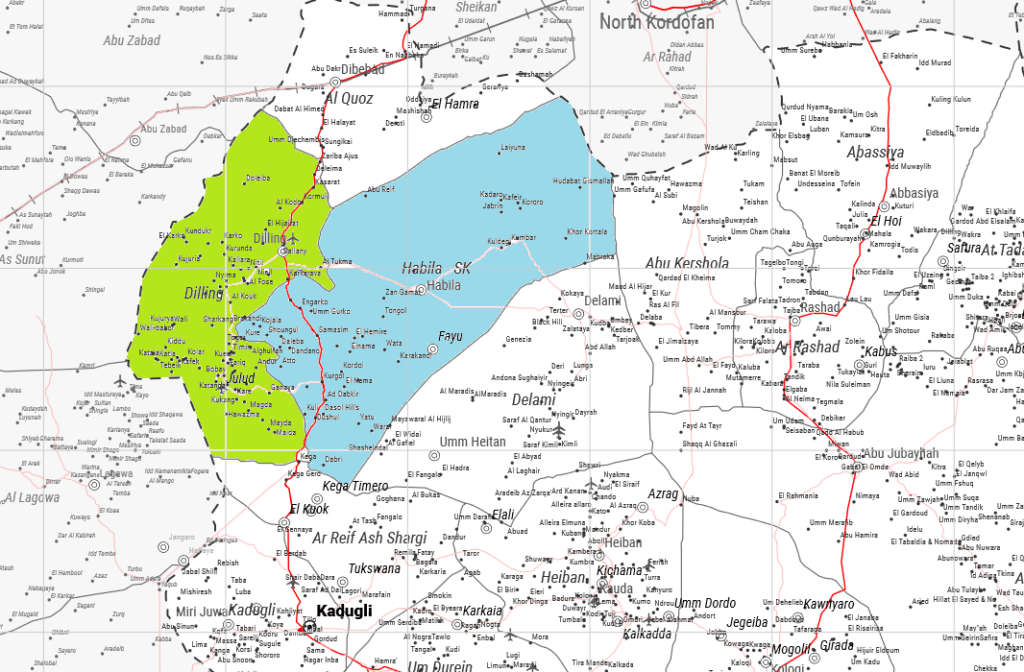‘Sudan army repels RSF assault on South Kordofan’

The localities of Delling and Habila (Map: OCHA map of South Kordofan, 2021)
Fierce fighting erupted in South Kordofan as the paramilitary Rapid Support Forces and their allied Popular Movement launched a three-pronged assault on Delling earlier this morning, according to military sources. The Sudanese Armed Forces and allied Joint Forces said they had repelled the attack after hours of clashes.
A military source aligned with the SAF told Radio Dabanga that government forces had seized dozens of combat vehicles and motorbikes and destroyed several others.
“Our forces repelled the attack on Delling and are combing the outskirts of the city,” the source said.
These clashes mark the first major attack on the town since the Sudanese Armed Forces (SAF) reopened the route from Habila at the end of January.
RSF fighters, meanwhile, claimed control of El Takma on the road between Habila and Delling, a move that could place the town under renewed siege barely a month after the blockade was lifted.
In North Kordofan, the RSF carried out a series of drone strikes on El Obeid, causing deaths and injuries. Military sources said one drone was shot down.
Dr El Amin, Acting Governor and Secretary General of North Kordofan condemned what he described as a new drone attack targeting the industrial area of El Obeid.
“The attack affected civilian objects and sources of livelihood,” he said, pointing to damage to shops and warehouses and accusing the RSF of repeatedly striking civilian infrastructure.











 and then
and then